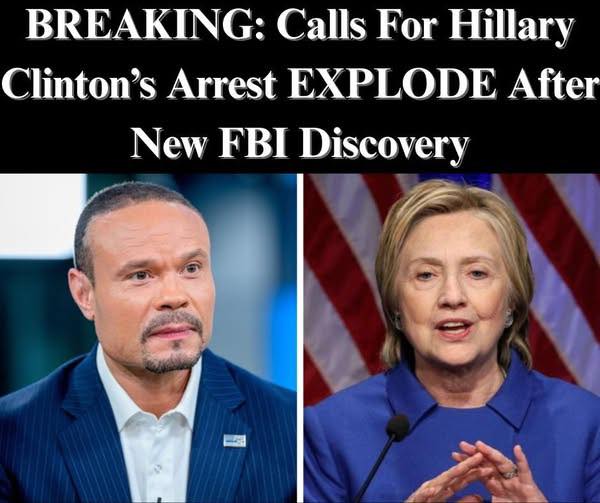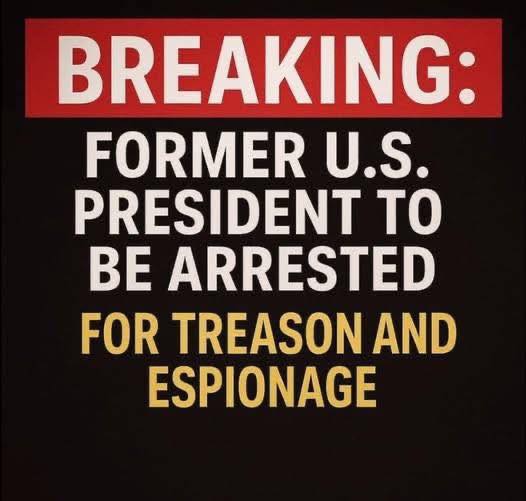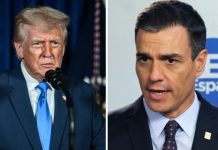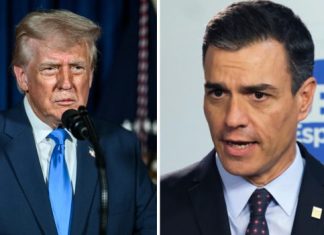The Truth Behind the Claims of Indicting Barack Obama
In recent weeks, sensational claims have emerged from a source known as OmegaNewsBD, alleging that the U.S. Department of Justice (DOJ) is poised to indict and arrest former President Barack Obama on serious charges, including treason, espionage, and seditious conspiracy. According to the article, federal law enforcement is collaborating with the Secret Service, and an indictment could occur “within days.” These alarming assertions, however, lack credible evidence and have not been corroborated by any established news organizations. A thorough examination of the circumstances reveals a concerning disconnect between the rumors and the actual situation.
The OmegaNewsBD article references unnamed “insiders” within the DOJ but fails to provide any tangible supporting documentation or official statements to back its claims. Moreover, it is telling that no mainstream media outlet—regardless of their political alignment—has reported anything resembling this allegation. This absence of corroboration raises significant questions about the validity of such a sensational claim and highlights the potential for misinformation to spread unchecked in today’s digital landscape. The rapidity with which news, particularly sensational news, can spread online poses a significant challenge to public understanding and trust in media.
Historical Context of Similar Rumors
This is not the first instance of outlandish rumors surrounding Barack Obama. In 2020, a completely fabricated story circulated, claiming that he had been arrested for espionage. This rumor was thoroughly debunked by reputable agencies such as Reuters, which determined that the claims were baseless. Such tactics are often characteristic of disinformation campaigns, where the names of prominent figures are attached to unrelated news in an attempt to generate clicks and views. In a polarized political environment, such rumors can have profound implications, as they tend to reinforce existing biases and deepen divisions among the public.
Current Investigations and Their Implications
Despite the lack of direct allegations against Obama, the DOJ has indeed launched investigations related to activities during his administration. In July 2025, Director of National Intelligence Tulsi Gabbard released over 100 pages of declassified documents. These documents suggested that certain officials from the Obama era may have manipulated or concealed information about Russian interference in the 2016 election, allegedly to undermine Donald Trump’s candidacy. Such revelations have stirred up discussions regarding the integrity of political processes and the role of intelligence agencies in shaping the electoral landscape. In light of these revelations, Attorney General Pam Bondi announced the formation of a specialized DOJ “strike force” tasked with reviewing these materials. Furthermore, a grand jury was convened to assess whether any criminal wrongdoing occurred regarding the intelligence community’s handling of information related to Russia. However, it is vital to emphasize that none of these inquiries have implicated Barack Obama directly, nor has the DOJ indicated that he is a target of their investigations. The distinction between investigating the actions of former officials and targeting a former president is crucial, as it underscores the complex nature of legal accountability in politics.

Political Timing and Speculations
The timing of these rumors has raised eyebrows among political analysts. They surfaced concurrently with renewed scrutiny of former President Donald Trump in relation to investigations connected to Jeffrey Epstein. Some suggest that the narrative surrounding Obama’s alleged arrest serves as a political distraction, diverting public attention from the legal challenges facing Trump. This theory is bolstered by the fact that political narratives often emerge strategically, particularly during pivotal moments in electoral cycles or when significant legal developments unfold. Vice President J.D. Vance hinted at potential indictments for unnamed individuals involved in the so-called “Russiagate” probe but did not mention Obama or offer any concrete details, suggesting a calculated approach to maintain public focus on ongoing investigations.
Impact of Misinformation on Public Discourse
Adding to the haze of misinformation, AI-generated videos depicting Obama’s arrest have gone viral on social media platforms. These deepfake clips have garnered significant attention, leading comedian and talk show host Stephen Colbert to publicly denounce them as “insane.” He suggested that such fabricated content is specifically designed to distract the public from more pressing political and legal developments that warrant genuine concern. The phenomenon of deepfakes poses a new challenge to media literacy, as consumers of information are increasingly confronted with the difficulty of discerning reality from fabrication in the digital age.
Legal Hurdles and Presidential Immunity
Even if credible evidence were to materialize against a former president, considerable legal obstacles would remain. A recent Supreme Court ruling has expanded presidential immunity for actions taken while in office, thereby complicating any attempts to pursue legal action against former presidents for decisions made during their terms. This legal framework underscores the challenges of holding past leaders accountable, even when serious allegations are raised. The broader implications of this legal principle could set precedents for future administrations, highlighting the importance of understanding the limits and protections afforded to elected officials.
Conclusion: The Need for Caution and Verification
Despite the dramatic claims made in recent weeks, there is no substantiated evidence indicating that the DOJ is preparing to arrest Barack Obama. While investigations into intelligence practices from the Obama era are ongoing, they currently focus on former officials rather than the former president himself. Until credible evidence or official confirmation arises, this narrative remains unverified and should be regarded as potentially politically motivated disinformation. The urgency of distinguishing between genuine news and sensationalist claims cannot be overstated, especially in a climate where trust in media is increasingly fragile. In an age where misinformation can spread rapidly, readers are encouraged to verify claims through established news outlets and exercise caution regarding headlines designed to provoke outrage rather than inform. The importance of discerning factual reporting from sensationalism cannot be overstated, particularly in a politically charged environment where every piece of information can influence public perception and shape policy discussions.














